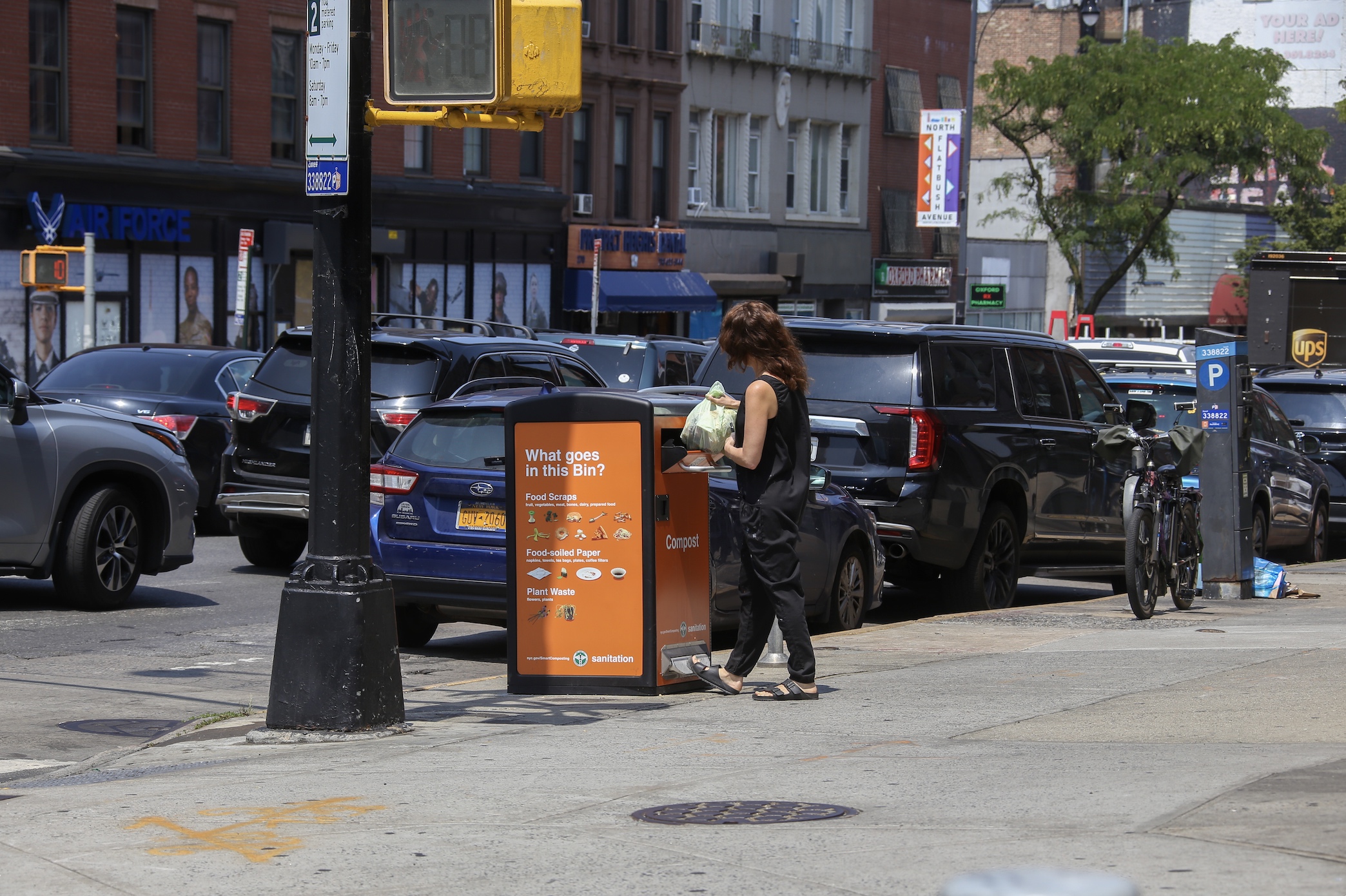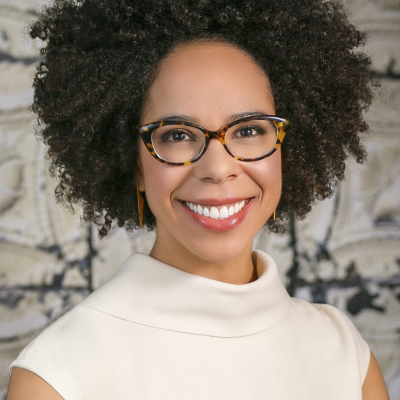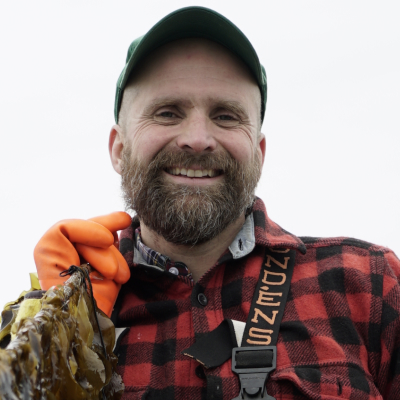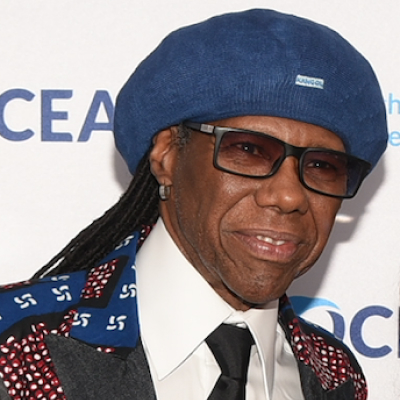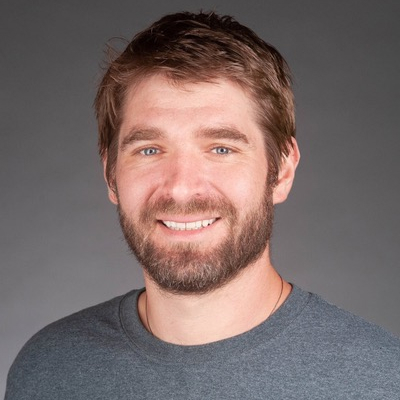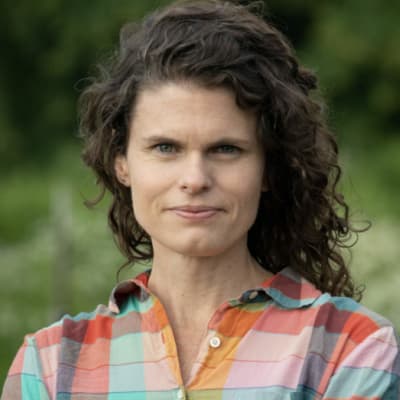We spoke with the NYC Department of Sanitation to find out how the most populated city in the United States is turning its trash into compost. Composting is a process that converts organic materials into nutrient-rich soil or mulch. By fall of 2024, every NYC borough will have full access to the Curbside Composting program, and according to a bill passed in June by the City Council, separating food waste will become mandatory in 2025. If you’re a resident, you’ll certainly find this Q&A helpful. And for those living elsewhere, this might draw inspiration or ideas to bring to representatives in your own town or city. Waste is a resource—compost it! —Charlotte DeFazio
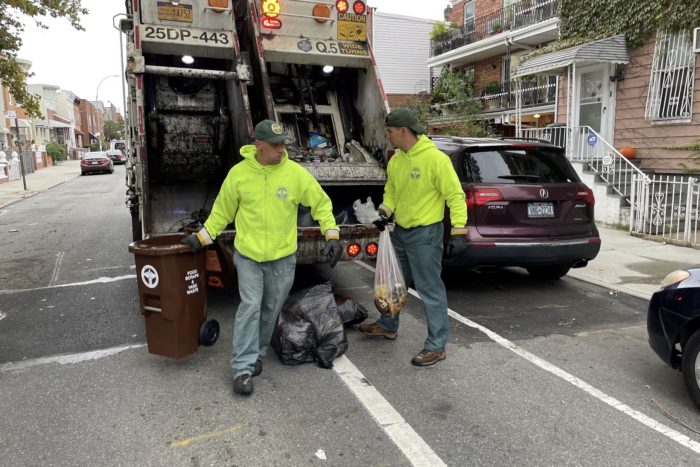
The Curbside Composting program is currently available in Queens and select areas in the Bronx, Brooklyn and Manhattan. How is it going so far?
Initial reports from our universal composting program in Queens showed it to be a huge success. More than half the districts in Queens outperformed Park Slope, which has participated in organics collection for nearly a decade. This data proved to us that removing the complex restrictions and requirements that previously existed—signing up, opting in, expressing interest, ordering a specific type of bin—was the right approach.
Our Queens program makes it simple: Just give us anything from your kitchen or anything from your garden in our bin or in your bin once a week on your recycling day, and we’ll come pick it up.
What is the projected timeline for Curbside Composting for all NYC residents?
March 27, 2023: Service restarted in Queens.
October 2, 2023: Service begins in Brooklyn.
March 25, 2024: Service begins in Staten Island and the Bronx.
October 7, 2024: Service comes to Manhattan, marking the first citywide curbside composting program ever.
How are you educating people on what can and cannot be composted?
In the months leading up to each launch, we are conducting extensive outreach, including traditional media, social media, meetings with community groups, and one-on-one outreach to residents via mailers and door-to-door visits. The message we are bringing is a simple one: As Commissioner Tisch said in the Feb. 1 announcement, “If you cook it or you grow it, you can throw it.”
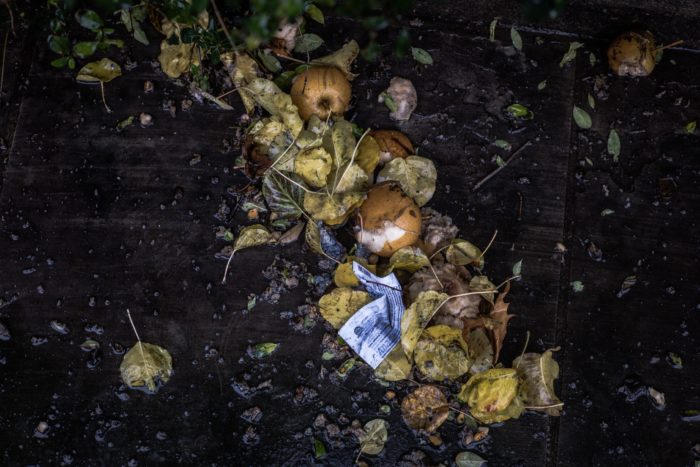
Is there a sorting system in place for catching items mistakenly placed in compost bins?
Yes, all material goes through a machine that sorts out any inorganic material, including plastic liners from food and yard waste. The machine we use for this at our Staten Island Compost Facility is called The Tiger.
Where and how is the compost being processed? How many commercial composting facilities are there?
At this time, material collected for composting goes to the following locations: DSNY’s Staten Island Compost Facility, DEP’s anaerobic digesters at Newtown Creek, Pine Island Farm anaerobic digester in Massachusetts, and Nature’s Choice composting facility in New Jersey. The Commissioner has said that we will be reevaluating the destination of compost material as the curbside composting program expands.
What is being done with the finished soil? Do residents have access to this for their gardens or indoor plants?
NYC residents are eligible to receive free compost made in New York at one of our Compost Giveback events. We held several in Queens throughout the Spring, and we will be announcing more events soon. In addition, all residents are welcome to pick up bags at the Staten Island Compost Facility on select days through the fall. Community gardens, nonprofits and city agencies can request an appointment to pick up bulk compost or to have pallets of bagged compost delivered to their location for free. Finally, we delivered bagged compost to over 200 organizations in the Spring, and we will be doing the same next year. Residents can learn more at nyc.gov/getcompost.
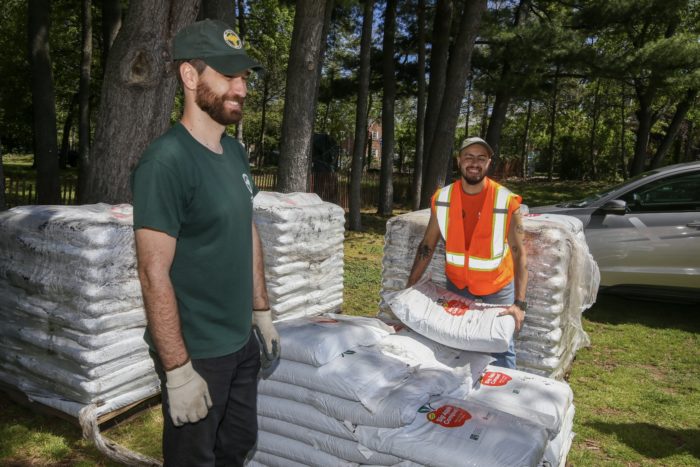
How does NYC’s composting program compare to that of other cities in the United States? Was a specific model followed by another city that aligned with NY’s needs?
We designed a successful curbside composting program by studying other cities where this works around North America—Seattle, Portland, San Francisco, Toronto—and one commonality was an early focus on leaf and yard waste. People naturally separate leaf and yard waste. It doesn’t come inside the home and then need to go back out; it doesn’t require a new behavior; and it’s not gross. It’s easy, just like the rest of the program, and there’s big tonnage in it, making for a successful, effective and cost-effective operation.
There are programs like GrowNYC or Common Ground that have been operating compost facilities for years with select drop-off sites. Are you working with any of these already established programs?
Yes, these organizations are an integral part of our network, and we will continue to work with them as our curbside program expands.
How are you getting residents to put in the effort of separating their trash? Will it become mandatory with a penalty or fine system in place?
The best way to get residents to use this program is to make it easy to use, and that is what we have done. There is no signup required, and no requirement to use a specific bin—just put your material out in any clearly marked bin on your recycling day.
Separating leaf and yard waste becomes mandatory as curbside composting rolls out in each borough, according to rules put in place by the Department of Sanitation. In addition, the City Council passed a bill in June that will make separating food waste mandatory in 2025.
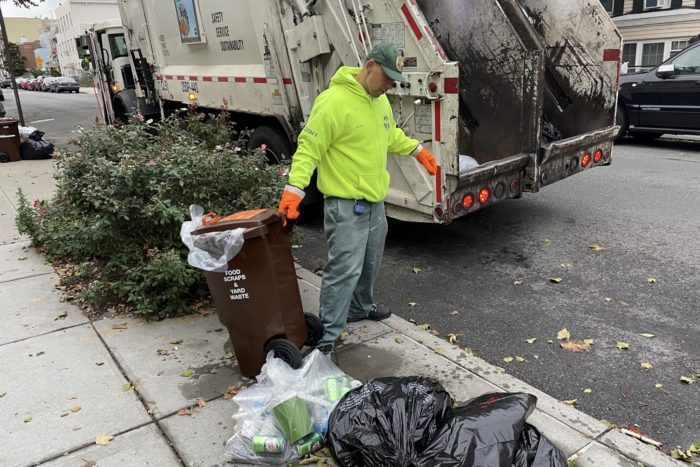
How is this working with restaurants and other businesses or office buildings? Same program as residents?
Businesses contract with private carters for waste, recycling and compost collection, and have different requirements. Many businesses are currently required to separate their organic waste. You can read more here.
Can you tell us about the Master Composter certification?
Yes, we are really proud to have made composting easy for EVERYONE—no special training required. The Master Composter Certificate Course is a compost education and outreach program open to all NYC residents at least 18 years old. The requirements include completion of seven workshops, two field trips, and 30 hours of approved, compost-related volunteering.
Realistically, is NYC on track to meet the goal of zero waste by 2030?
As Commissioner Tisch noted in City Council testimony June 15, 2022, “The previous Administration set the goal of zero waste to landfill by 2030 in 2015, and very little progress has been made in the seven years since. The citywide diversion rate in 2015 was 17.8%; that number today is only 20.8%. So, halfway through the performance period, the diversion rate has only increased by 3%. We’re simply not on a path toward zero waste by 2030 on our current trajectory. Nor do we have enough time left before 2030 for me to sit here today and genuinely tell you I think the goal is achievable.” You can read more from that testimony here.

